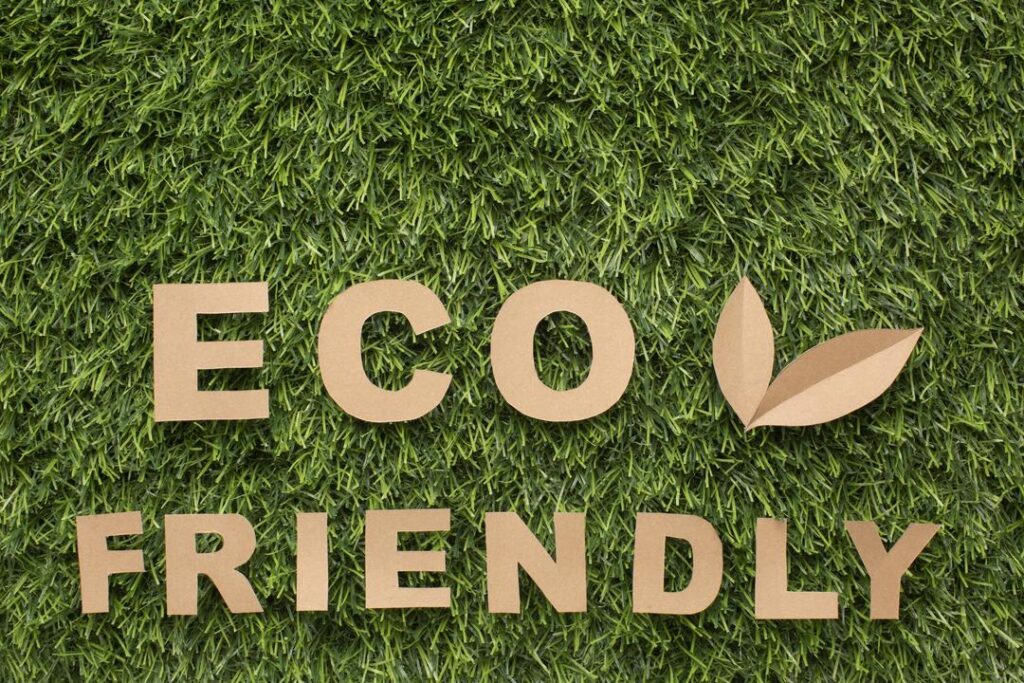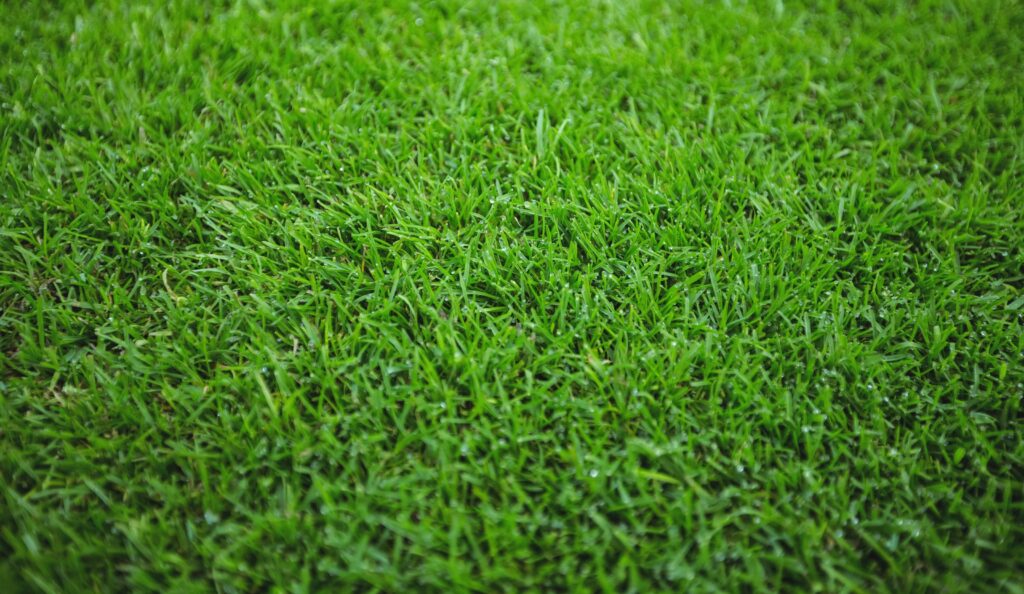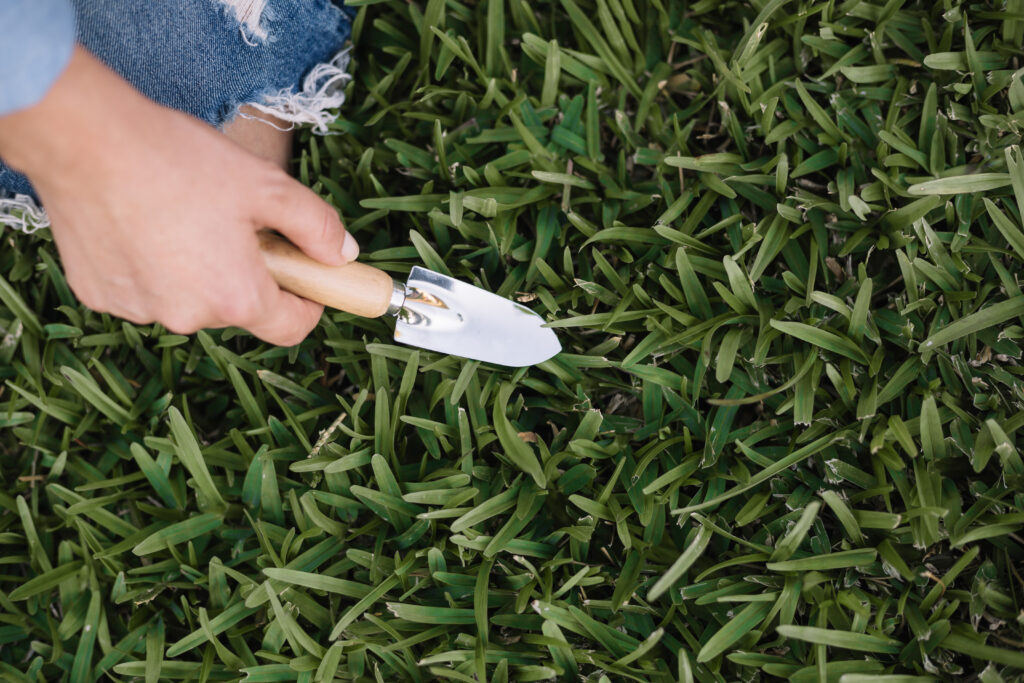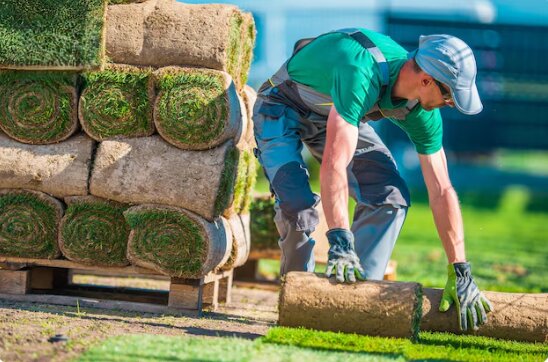Artificial Grass is Eco-Friendly?
Artificial Grass is Eco-Friendly?. As Atlanta homeowners increasingly seek sustainable landscaping solutions, artificial grass has emerged as a popular choice. This synthetic alternative to natural grass is often lauded for its low maintenance and durability, but how Artificial Grass is Eco-Friendly? is it really? In this extensive guide, we’ll delve into the environmental impacts of artificial grass, comparing it with traditional natural grass and exploring its advantages and drawbacks. We’ll also discuss the manufacturing process and provide insights into the cost and installation of artificial turf in Atlanta, GA.

What Is Artificial Grass and How Is It Manufactured?
Artificial grass, also known as synthetic turf, is designed to replicate the appearance and feel of natural grass. It is widely used for various applications, including residential lawns, sports fields, playgrounds, and commercial spaces. Understanding its manufacturing process and composition is crucial for evaluating its environmental impact.
1. Composition of Artificial Grass
Artificial grass is typically made from synthetic fibers such as nylon, polyethylene, or polypropylene. These materials are chosen for their durability, resistance to wear, and ability to maintain a consistent appearance. Some advanced types of artificial turf are manufactured using recycled materials, including:
- Recycled Tires: Rubber crumb from old tires is often used as infill material, providing cushioning and support for the grass blades.
- Recycled Plastics: Plastic bottles and other recycled plastics can be processed into synthetic fibers, reducing the need for virgin materials.
2. Manufacturing Process
The manufacturing process of artificial grass involves several key steps:
- Fiber Production: Synthetic fibers are produced through extrusion, where plastic pellets are melted and formed into long strands. These fibers are then cut to the desired length to mimic grass blades.
- Backing Material: The fibers are attached to a backing material, which provides structural support. The backing is often made from latex or polyurethane.
- Infill Application: Infill materials, such as rubber crumb or sand, are spread between the grass fibers. Infill helps to stabilize the grass, improve drainage, and provide cushioning.
3. Environmental Considerations in Manufacturing
While the use of recycled materials in manufacturing artificial grass helps reduce the consumption of virgin resources, the production process still involves energy consumption and emissions. Manufacturers are increasingly adopting more sustainable practices to mitigate these impacts, such as using eco-friendly adhesives and reducing waste.
How Does Artificial Grass Compare to Natural Grass in Terms of Eco-Friendliness?
Comparing artificial grass to natural grass involves evaluating several environmental factors, including water usage, chemical applications, and maintenance needs. Artificial Grass is Eco-Friendly?
1. Water Usage
One of the most significant environmental benefits of artificial grass is its reduction in water consumption:
- No Irrigation Needed: Artificial grass does not require watering, which can save thousands of gallons of water annually. This is especially beneficial in Atlanta, where water conservation is a concern due to periodic droughts.
- Reduced Runoff: Natural grass often requires chemical treatments that can lead to water runoff and pollution. Synthetic turf eliminates the need for such treatments, reducing potential water contamination.
2. Chemical Treatments
Traditional lawns often require various chemical treatments to remain healthy:
- Fertilizers: Natural grass typically needs regular fertilization to maintain its health and appearance. These fertilizers can contribute to soil and water pollution.
- Pesticides and Herbicides: Pesticides and herbicides used to control pests and weeds can have harmful effects on local ecosystems and human health.
Artificial grass eliminates the need for these chemicals, making it a more environmentally friendly option. However, it’s important to note that the turf itself is made from synthetic materials, which may have environmental implications.
3. Maintenance Requirements
Artificial grass offers several advantages over natural grass in terms of maintenance:
- No Mowing: Synthetic turf eliminates the need for mowing, which reduces reliance on gas-powered lawn equipment and the associated greenhouse gas emissions.
- No Fertilizing: As mentioned, artificial grass does not require fertilizers or other chemical treatments, reducing the environmental impact associated with traditional lawn care.
Advantages of Artificial Grass for Atlanta Homes

Artificial Grass is Eco-Friendly? and advantages Artificial grass provides numerous benefits that can enhance the sustainability and functionality of your outdoor space. Here’s a detailed look at the advantages of installing synthetic turf:
1. Durability
Artificial grass is designed to withstand heavy foot traffic and harsh weather conditions:
- Long Lifespan: High-quality synthetic turf can last between 15-20 years, depending on usage and maintenance. This durability means fewer replacements and less waste compared to natural grass.
- Resistant to Wear and Tear: Artificial grass is resistant to damage from foot traffic, pets, and weather conditions, making it a practical choice for high-traffic areas.
2. Low Maintenance
One of the most appealing aspects of artificial grass is its low maintenance requirements:
- Minimal Upkeep: Synthetic turf requires no mowing, watering, or fertilizing, which can save both time and money. This low-maintenance feature is particularly advantageous for busy homeowners.
- Easy to Clean: Most artificial grass is easy to clean and maintain, requiring only occasional brushing and rinsing to remove debris and maintain its appearance.
3. Pet-Friendly
For pet owners, artificial grass offers several benefits:
- Durability: Synthetic turf is resilient to pet use and can handle high activity levels without becoming worn or damaged.
- Drainage: Many artificial grass products are designed with excellent drainage capabilities, preventing the buildup of mud and odors.
4. Chemical-Free
Artificial grass eliminates the need for pesticides, herbicides, and fertilizers, which can have negative environmental impacts:
- Reduced Chemical Use: By not requiring these chemicals, synthetic turf minimizes potential environmental contamination and supports a healthier ecosystem.
Drawbacks of Artificial Grass
Artificial Grass is Eco-Friendly? Yes it is but i have some drawbacks. While artificial grass offers many advantages, it’s important to consider some of the potential drawbacks:
1. Initial Cost
The initial cost of installing artificial grass can be higher than natural grass:
- Installation Costs: The cost of purchasing and installing synthetic turf typically ranges from $6 to $12 per square foot, depending on factors such as quality and complexity of the installation.
- Long-Term Savings: While the upfront cost may be high, artificial grass can provide long-term savings through reduced maintenance and water bills.
2. Heat Retention
Artificial grass can become hot under direct sunlight:
- Heat Absorption: Synthetic turf can absorb and retain heat, making it uncomfortable for barefoot use during hot weather. However, some modern turfs are designed with cooling technologies to mitigate this issue.
3. Environmental Impact
Although artificial grass offers several environmental benefits, it is still made from synthetic materials:
- Material Concerns: The production of artificial grass involves synthetic materials and chemicals, which may have environmental implications. It’s important to choose products from manufacturers that prioritize sustainability and use recycled materials.
Cost of Artificial Grass. Atlanta, Ga

The cost of artificial grass in Atlanta, GA, typically ranges from $6 to $12 per square foot. Factors affecting this price include the quality of the turf, installation complexity, and specific project requirements. Higher-end options, which often feature enhanced UV resistance, advanced drainage systems, and superior durability, are at the top of this price range. By understanding the cost of artificial grass, you can make an informed decision that balances budget with quality. Investing in premium synthetic turf can lead to significant long-term savings on maintenance and water usage.
1. Cost per Square Foot
In Atlanta, the average cost of installing artificial grass ranges from $6 to $12 per square foot. This cost can be influenced by:
- Quality of Turf: Higher-quality turf materials with advanced features may have a higher cost.
- Complexity of Installation: Projects that require extensive site preparation or custom installations may incur additional costs.
2. Long-Term Savings
While the initial investment in artificial grass can be significant, it offers several long-term savings:
- Reduced Maintenance Costs: By eliminating the need for mowing, watering, and fertilizing, artificial grass can save money on ongoing maintenance.
- Water Savings: Synthetic turf can significantly reduce water bills, particularly in drought-prone areas like Atlanta.
Transform your outdoor space with exceptional artificial grass installation from atlantaartificialgrassco. Right now, we’re offering discounts your artificial grass installation in Atlanta, GA. Discover the value of our services and learn how understanding the cost of artificial grass can help you choose the best solution for your needs. Contact us today for a free consultation and let our experts deliver a high-quality, low-maintenance lawn that enhances your property’s beauty and sustainability.
DIY Installation vs. Professional Installation

When it comes to installing artificial grass, homeowners have the option to tackle the project themselves or hire a professional:
1. DIY Installation
DIY installation can be a cost-effective option if you have the necessary skills and tools:
- Cost Savings: Performing the installation yourself can save on labor costs.
- Complexity: Installing artificial grass involves several steps, including site preparation, base installation, and turf laying. Proper execution is crucial for achieving optimal results.
2. Professional Installation
Hiring a professional ensures a high-quality installation with expert knowledge and experience:
- Expertise: Professional installers are skilled in handling all aspects of the installation process, ensuring a seamless and durable result.
- Time Savings: Professional installation can save time and effort, allowing you to enjoy your new lawn without the hassle of a DIY project.
Conclusion
Our point was Artificial Grass is Eco-Friendly?Yes it is and aslo Artificial grass presents a compelling option for Atlanta homeowners seeking a low-maintenance, eco-friendly landscaping solution. With its benefits in water conservation, reduced chemical use, and durability, synthetic turf offers a sustainable alternative to natural grass. While there are some drawbacks to consider, such as the initial cost and potential heat retention, the long-term advantages often outweigh these concerns.
If you’re considering artificial grass for your home in Atlanta, GA, explore the various options available and choose a solution that aligns with your needs and preferences. For professional installation services and expert advice, contact us today. Our team is dedicated to helping you transform your outdoor space with high-quality artificial grass that enhances both its beauty and functionality.
Why choose us?
Upgrade your outdoor space with our expert artificial grass installation services in Atlanta, GA. We offer high-quality synthetic turf solutions tailored to your needs, ensuring a beautiful and eco-friendly lawn. Contact us today to discover how our professional installation can transform your property.
